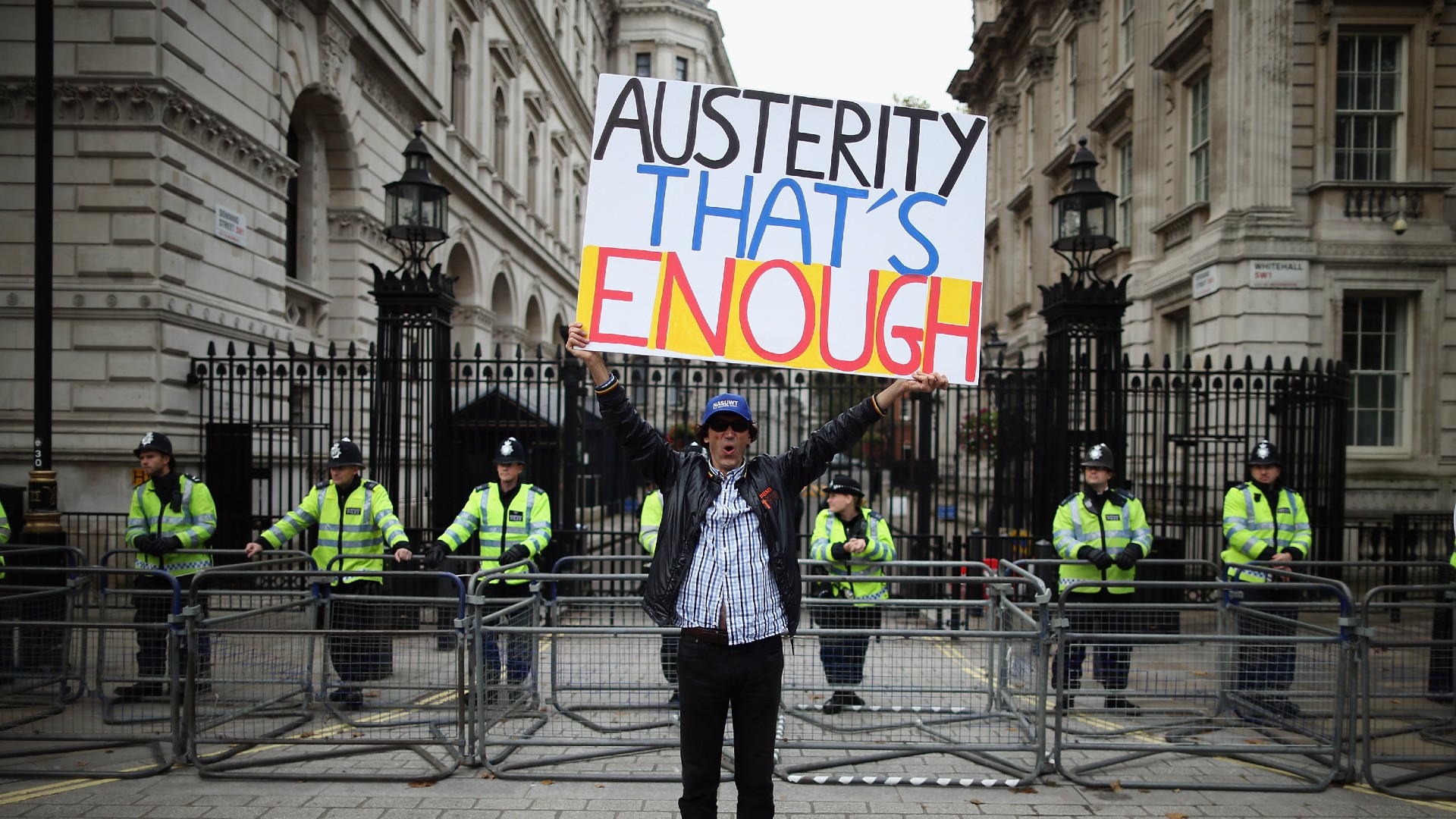Chancellor urged to cover 100% of business loans
With payday looming, the roll-out of the government’s flagship bailout scheme is facing mounting criticism

A free daily email with the biggest news stories of the day – and the best features from TheWeek.com
You are now subscribed
Your newsletter sign-up was successful
The chancellor is facing mounting pressure to fully underwrite loans to hundreds of thousands of small businesses ahead of payday this week.
Under the government’s flagship £330bn bailout scheme unveiled last month, the Treasury has promised to cover 80% of wages up to £2,500 a month to businesses who furlough staff rather than making them redundant.
However, one month into the lockdown, and with Friday’s payday looming, “businesses are fast running out of cash” but “money is only trickling out of [Chancellor Rishi] Sunak’s £330bn bailout fund”, says The Times.
The Week
Escape your echo chamber. Get the facts behind the news, plus analysis from multiple perspectives.

Sign up for The Week's Free Newsletters
From our morning news briefing to a weekly Good News Newsletter, get the best of The Week delivered directly to your inbox.
From our morning news briefing to a weekly Good News Newsletter, get the best of The Week delivered directly to your inbox.
As of the middle of last week, only £1.1 billion had been lent to about 6,000 of Britain’s 5.8 million small companies. Yet today up to 2.3 million businesses are eligible to apply for government furlough cash to pay wages, “potentially flooding HMRC’s new website when it opens”, says The Times.
Comments by Bank of England Governor Andrew Bailey that an extension of government guarantees to lenders from 80% to 100% could speed up the delivery of financial assistance to cash-strapped firms and make the process less complicated has “heaped additional pressure on the Chancellor to follow the example of other countries” says the BBC.
Once again Germany has been held up as the example to follow. Fully backed by the state, its scheme has already lent out €7bn compared with just £1.1bn in the UK.
US lenders have approved more than 300 times as much lending as in the UK while even Swiss banks have approved 98,000 loans, compared to just over 6,000 in the UK.
A free daily email with the biggest news stories of the day – and the best features from TheWeek.com
Arguing “numerous restrictions to both lenders and borrowers show the state-backed loan scheme is not currently fit for purpose”, The Telegraph says “banks still feel the need to put a big effort into the so-called ‘forward-looking viability assessment’, which is supposed to work out the chance of a company actually having a business on the other side of the crisis”.
“Many have said they are worried the British Business Bank, the administrator of the loans, will use inadequate assessments as an excuse to walk away from the 80% of the loan that the government is guaranteeing,” the paper says.
The BBC reports that “currently banks do not feel they can dispense with normal credit checks just because they may ‘only’ lose 20% of the sum advanced”.
Shadow business secretary Ed Miliband is one of a growing number arguing that the state should fully underwrite the loans rather than just 80% of the value as it currently does.
“On the other side of the crisis, you will not wish you had done less but that you had done more,” he said.
However, the BBC adds that “expanding the guarantee to 100% would mean the taxpayer would be taking all the risk that the loans were not repaid”, an outcome Miliband has admitted creates a “moral hazard”.
–––––––––––––––––––––––––––––––For a round-up of the most important stories from around the world - and a concise, refreshing and balanced take on the week’s news agenda - try The Week magazine. Start your trial subscription today –––––––––––––––––––––––––––––––
-
 ‘Poor time management isn’t just an inconvenience’
‘Poor time management isn’t just an inconvenience’Instant Opinion Opinion, comment and editorials of the day
-
 Bad Bunny’s Super Bowl: A win for unity
Bad Bunny’s Super Bowl: A win for unityFeature The global superstar's halftime show was a celebration for everyone to enjoy
-
 Book reviews: ‘Bonfire of the Murdochs’ and ‘The Typewriter and the Guillotine’
Book reviews: ‘Bonfire of the Murdochs’ and ‘The Typewriter and the Guillotine’Feature New insights into the Murdoch family’s turmoil and a renowned journalist’s time in pre-World War II Paris
-
 The end for central bank independence?
The end for central bank independence?The Explainer Trump’s war on the US Federal Reserve comes at a moment of global weakening in central bank authority
-
 Should Labour break manifesto pledge and raise taxes?
Should Labour break manifesto pledge and raise taxes?Today's Big Question There are ‘powerful’ fiscal arguments for an income tax rise but it could mean ‘game over’ for the government
-
 What are stablecoins, and why is the government so interested in them?
What are stablecoins, and why is the government so interested in them?The Explainer With the government backing calls for the regulation of certain cryptocurrencies, are stablecoins the future?
-
 Is the UK economy returning to normal?
Is the UK economy returning to normal?Today's Big Question Tories claim UK has 'turned a corner' while Labour accuses government of 'gaslighting' public
-
 New austerity: can public services take any more cuts?
New austerity: can public services take any more cuts?Today's Big Question Some government departments already 'in last chance saloon', say unions, as Conservative tax-cutting plans 'hang in the balance'
-
 Will the UK economy bounce back in 2024?
Will the UK economy bounce back in 2024?Today's Big Question Fears of recession follow warning that the West is 'sleepwalking into economic catastrophe'
-
 Would tax cuts benefit the UK economy?
Would tax cuts benefit the UK economy?Today's Big Question More money in people's pockets may help the Tories politically, but could harm efforts to keep inflation falling
-
 Withdrawing benefits: 'war on work shy' or 'matter of fairness'?
Withdrawing benefits: 'war on work shy' or 'matter of fairness'?Talking Point Jeremy Hunt to boost minimum wage while cracking down on claimants who refuse to look for work